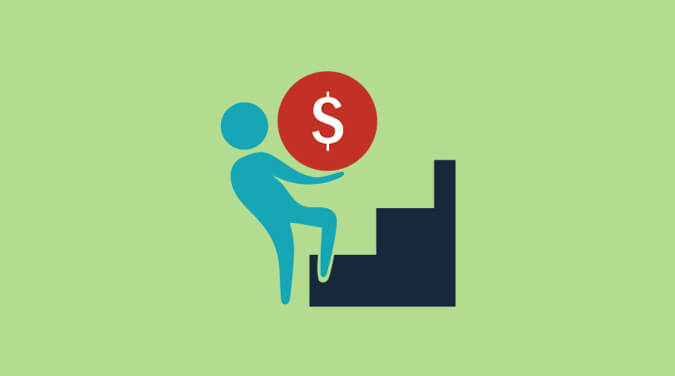Steps You Must Take Within 5 Years of Retirement

One way to make an event stressful: head into it unprepared. If you’re within five years of retirement, don’t procrastinate. Five years may seem like a long time, but it goes fast. And research shows those who start planning at least five years out have a happier retirement! There is nothing to lose and only happiness to gain by taking the following five short-term retirement planning steps as soon as possible.
1. Increase Cash Reserves
Applying for pensions and Social Security, as well as setting up withdrawals from IRA’s and 401(k) plans, takes time and paperwork. Things can get delayed and you may not always get your first pension check on time, so you want to plan for a glitch or two along the way.
Prepare for delays by having extra cash reserves tucked away in safe investments; things like savings, checking and money market accounts. The amount to tuck away is anywhere from three to six months worth of living expenses.
2. Estimate How Much Money You Need to Retire
To decide if you have enough to retire, you must develop an accurate estimate of the amount of money you spend, and the amount of income you will have each month. Although boring, this is the most important retirement planning step you can take.
Start with a yellow pad and write down your current take-home pay and your current monthly expenses.
Don’t forget about variable costs like hobbies, home improvements, and vehicle repairs.
Then write down the monthly income that will be available from pensions, Social Security and IRA/401(k) withdrawals. Is this number close to your current take home pay? If not, you have four choices: spend less in retirement, save more now, work a few extra years, or earn a higher rate of return on your investments.
If you’re not great at doing these calculations on your own search for a qualified financial advisor to help. Retirement is, hopefully, something you only do once, so seeking professional help is perfectly okay.
3. Evaluate Tax Consequences
Will you be in a lower tax bracket in a few years? Then be sure to maximize tax deductible contributions now. Are you thinking about moving? Up to $500,000 if married ($250,000 if single) of capital gains from the sale of your home may be tax-free (subject to applicable IRS regulations). Do you have company stock that needs to be diversified? Plan for the amount of tax that will be owed the year you sell the stock or spread the sale over several calendar years.
Retirees routinely underestimate the amount of taxes they will pay in retirement. A little planning in this area can keep you out of major trouble later on.
4. Diversify Your Investments
Watching your portfolio go up and then back down again is never enjoyable, but in the end, as long as you end up with a big enough pot of money, it doesn’t really matter how you got there.
Once you are retired, however, it’s a different story. When you are taking regular withdrawals from a portfolio, volatility has a much greater impact. This is something us retirement planners call sequence risk. Reducing the up’s and down’s can significantly increase the odds that your money will last through your life expectancy.
Spend time figuring out what mix of investments will achieve the rate of return you need while having a level or risk that is reasonable for you. The risk/return characteristics of your portfolio will determine how much income you will have, and how long it will last.
5. Educate Yourself
Although it is advisable to seek professional guidance, the truth is no one will ever care about your money as much as you do. Take the time to learn about retirement planning and investing.
You’ll want to learn about investing approaches that affect the distribution phase in retirement as it is quite different than the accumulation phase. And throw out old beliefs like “annuities aren’t good” or “reverse mortgages are bad”. Approach your planning with an open mind and with the goal of making sure your income is secure. This approach will lead you to make more appropriate choices than if your focus is on getting the highest rate of return.
Some suggestions: attend an investment class at the local community college, take an online investment class, read books, and use the internet to learn. You spent a significant amount of your life earning this money; now it’s time to learn how it will earn for you.